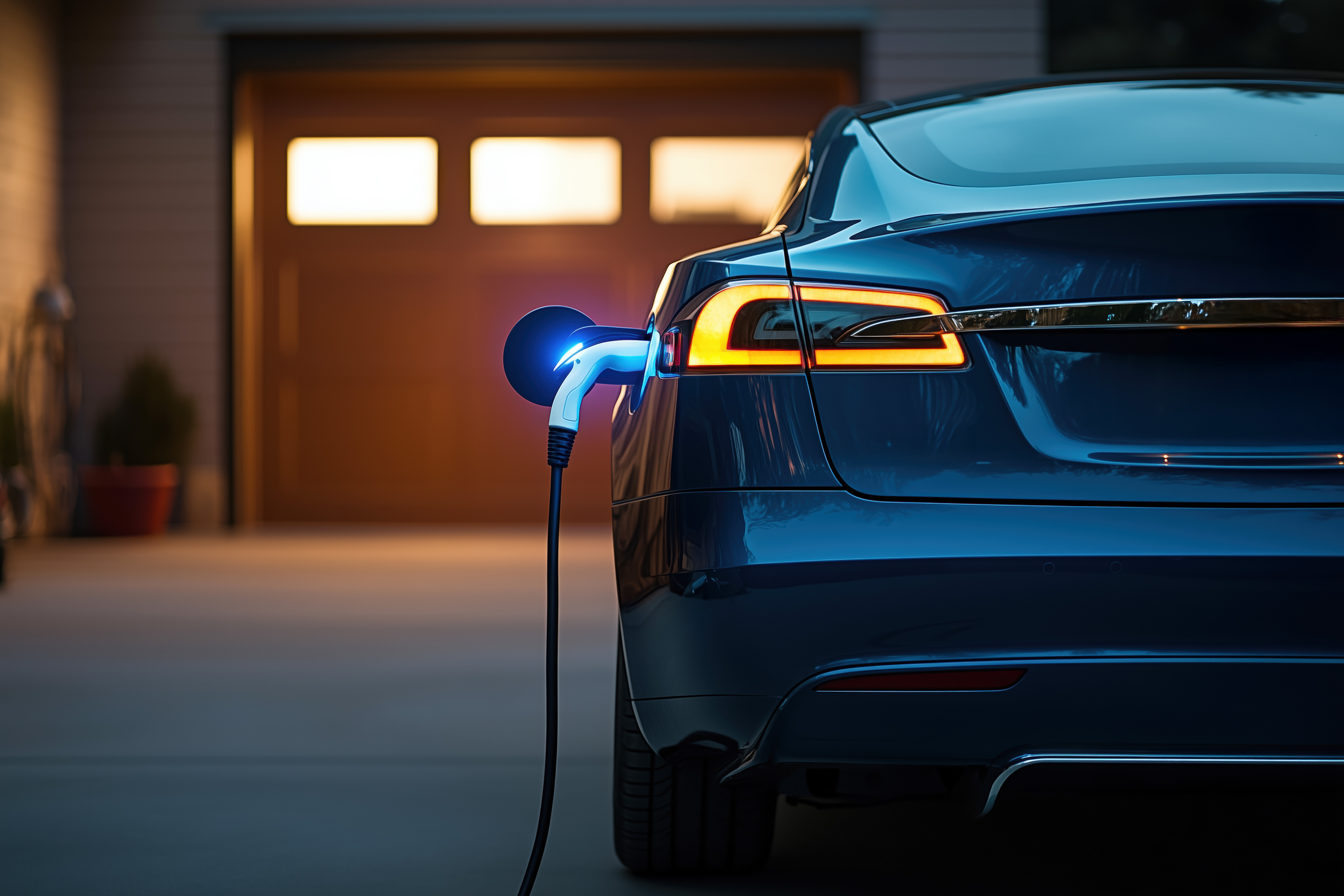Due to constantly shifting gas prices and a stronger nationwide focus on reducing greenhouse gas emissions, many consumers are considering the switch to a fully electric or hybrid vehicle.
Of course, investing in an electric vehicle, or EV, comes with environmental benefits. But there are also some intriguing financial incentives, from tax breaks to lower costs for maintenance and fuel.
If you’re considering a more efficient car, you may struggle to compare gas vs. hybrid vs. electric vehicles. Both hybrids and EVs offer significant advantages over traditional gas-powered cars, but there are some key differences between the two.
Read on to learn how an EV differs from a hybrid to help you decide when purchasing a new, more efficient vehicle.
{{CTA-EV-to-Solar}}
Related: Compare gas vs. electric cars
What Is the Difference Between Hybrid and Electric Cars?
As their name suggests, hybrid vehicles have both a traditional internal combustion engine (ICE) and an electric motor, as well as batteries for each one. That means a hybrid can run on electricity and gas, using its battery to help improve fuel economy. When your electric battery is low, the gas engine can take over.
On the other hand, fully electric vehicles run solely on electric power, which means you will have to charge the car regularly and can’t rely on gas as a backup.
While a hybrid is an improvement over a traditional gas-powered vehicle regarding environmental impact and saving on fuel, if you want to drive completely emission-free, an EV is the car for you.
Plug-In Hybrid vs. Hybrid vs. Electric Car
There is also a difference between a plug-in hybrid electric vehicle (PHEV) and a standard hybrid car. PHEVs allow you to charge the electric battery to run entirely on electricity. At the same time, standard hybrids refill their batteries through systems like regenerative braking and cruising to a stop.
The main difference between plug-in hybrid vs. electric cars is that an EV runs entirely on electricity. In contrast, a plug-in hybrid can run on either electricity or gas. If you’re looking for a partially electric vehicle that you can plug into a charger, a PHEV is what you want.
Hybrid vs. Electric Cars Pros and Cons
Both hybrid and electric vehicles have their advantages and disadvantages. Which one is right for you depends on your lifestyle, commute, and how often and far you drive.
Charging Considerations
If you own a home, you can install a charging port for your electric vehicle, allowing you to recharge the battery overnight, eliminating the concern about the time to charge an EV. However, if you live in a rental, you may want to opt for a hybrid vs. electric car so you can fall back on gas as an option. Otherwise, you’ll have to rely entirely on public electric charging stations, which may be hard to find in some areas.
An EV requires you to plan long road trips around the availability of charging stations, which often means sticking to interstates and staying in major metropolitan areas as much as possible. With a hybrid, you can fill up at a gas station when electric charging stations are unavailable.
Related: What is the cost to charge an electric car?
Vehicle Cost
Hybrids cost around $1,000 to $3,000 more than traditional gas-powered vehicles, but electric cars can cost anywhere from several thousand to over $10,000 more. However, some EVs are eligible for a federal tax incentive and may qualify for state and local incentives.
Maintenance and Repairs
While electric vehicles are more expensive upfront than hybrids or gas-powered cars, their maintenance costs tend to be much lower. This is because an EV has fewer moving parts and doesn’t require frequent visits to the auto shop like a vehicle with an internal combustion engine.
However, when EVs need repair, they can be expensive because they are still relatively new, and the parts aren’t as readily available as those of standard cars. In addition, labor costs can also be higher, which is something to consider when comparing hybrid vs. electric options.
Related: Learn how long an EV battery will last.
Hybrid vs. Electric Cars Environmental Impact
Because they have traditional gas engines, hybrid vehicles emit some emissions into the air, but they are better for the environment than fully gas-powered cars.
Electric vehicles, however, have no tailpipe emissions. Still, they do contribute to greenhouse gases indirectly because the electricity used to charge an EV may come from power plants fueled by nonrenewable resources, like coal, oil, or natural gas. All Gexa residential plans are 100% green, allowing you to charge green and drive clean.
Final Thoughts: Advantages of Hybrid Vehicles
Overall, a hybrid car has numerous advantages over a traditional gas-powered vehicle:
- Excellent gas mileage because of the ability to be powered by electricity
- No charging required
- Always have gas as a backup option
- Often more powerful than gas vehicles
- Produce lower emissions
Advantages of Electric Vehicles
In many cases, a fully electric vehicle takes the pros of a hybrid and boosts them:
- Less expensive to power (electricity prices are usually much lower than gas prices)
- Zero tailpipe emissions
- Smooth, quiet driving experience
- Lower maintenance costs
- Convenient to recharge with an at-home charging station
Regardless of your choice, hybrid and electric cars offer significant environmental and financial benefits to drivers over traditional gas-powered vehicles. Either way, you’re taking steps toward helping to limit carbon emissions and keep the planet healthy.
Gexa Energy offers 100% renewable residential electricity plans, including some specifically for EV drivers with at-home chargers. Learn about renewable energy and join us in building a cleaner, more reliable future for Texas.






































